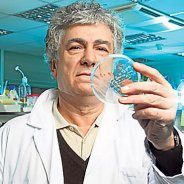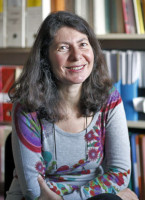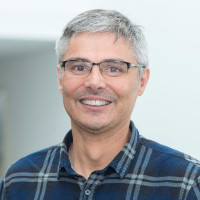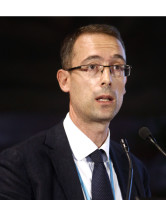Longevity, Ageing and Long-term Care
Cellular Ageing
Healthy Ageing & Longevity
AXA Projects
France
Biology of immortal and robust organisms
His aim is to gain insight on how aging, or resisting the passage of time, occurs at the molecular level. Our body is made of organs, and organs are made of cells. Therefore, when cells age, organs and organisms also age.
Aging is functional deterioration mainly due to corrosion of biomolecules caused by oxygen free radicals. Such radicals are unavoidable since they are generated when our body produces energy—which is why we need to breathe. But they can also be found in air pollutants, food, water or drugs. Luckily, our cells have protection, repair and clean-up systems to counteract molecular damage. Like a skilled surgeon, special proteins repair DNA damage and replace damaged proteins. Radman points out that aging occurs when these life-protecting proteins are themselves damaged: they cannot repair the damage that accumulates, and the whole body ages and eventually dies.
Fascinated by robust and immortal species, Radman is studying how robust cells protect and repair themselves during oxidative stress. His approach has proved original and productive: he now believes that all organisms share the same chemistry of aging—protein damage—which is also the common cause of all age-related diseases, and that we may soon be able to prevent and treat the very cause of degenerative diseases. He has uncovered the mystery of robust species: their cells produce a molecular cocktail that protects cellular machinery from oxidative damage. Once its chemical composition is known, it could be used in humans to protect against age-related diseases and eventually delay aging. A potion for eternal youth may just be one step away.
Immortality is only one step away
To add or modify information on this page, please contact us at the following address: community.research@axa.com

Miroslav
RADMAN
Institution
Institut National de la Santé et de la Recherche Médicale
Genetics and Development Institute
Country
France
Nationality
Croatian
Related articles
Longevity, Ageing and Long-term Care
Societal Challenges
Demography
Emerging Market
Income & Wealth
Inequality & Poverty
Joint Research Initiative
United States
2018.04.30
Mortality: towards reliable estimates in developing countries
Getting the most out of unreliable data, and actuarial applications Indeed, by attempting to prove that the mortality datasets available... Read more

Magali
BARBIERI
University of California - Berkeley
Longevity, Ageing and Long-term Care
Prevention & Personalised Health
Healthy Ageing & Longevity
Genetics & Omics
Post-Doctoral Fellowship
United Kingdom
2017.06.30
Longevity : do you have the genes for it?
The investigation of ageing genes is a very active topic of research, but a very challenging one. « This kind... Read more

Peter
JOSHI
